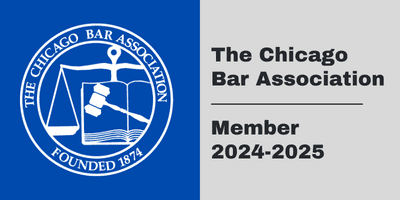













A person commits criminal trespass to land when they knowingly enter or remain on another’s property without permission. This offense involves unlawfully accessing real property, buildings, or enclosed areas.
The offense of trespass is typically prosecuted as a misdemeanor in the state of Illinois, and a conviction can have severe consequences. However, there are key elements that the prosecution must prove to secure a conviction. Fortunately, a skilled criminal defense firm like Hirsch Law Group can provide you with the legal guidance and defense you need to beat such charges or incur minimum penalties.
To find out more about the potential consequences and legal provisions for criminal trespass to land in Illinois, continue reading.
In Illinois, criminal trespass is defined under 720 ILCS 5/21-3. There are several actions captured under this legal provision. They include:
The types of property covered include homes, businesses, agricultural land, and unoccupied buildings. Criminal trespass may also apply to orchards and fields with growing crops or animals.
Criminal trespass does not apply to any law enforcement officer who enters another person’s property to carry out his or her official duties. But it can apply to law enforcement officers who are carrying out some other activity that is not in line with their official duties.
At Hirsch Law Group, we understand the nuances of Illinois trespass laws. Our team can evaluate the details of a case to determine if all elements of criminal trespass are present and develop an appropriate defense strategy.
Penalties vary based on the specific circumstances and property involved. A first offense of criminal trespass is typically charged as a Class B misdemeanor. This includes the basic forms of trespass including where a person presents false documents to gain access to an otherwise prohibited property.
However, where trespass involves using a vehicle to enter crop fields, property containing livestock, and orchards, knowing that entry is forbidden or remaining on the property after being asked to depart, the offense is a Class A misdemeanor. Furthermore, repeating a Class B criminal trespass can escalate the charge to a Class A misdemeanor.
Class B misdemeanors attract a maximum of 6 months in jail and fines up to $1,500. Meanwhile, Class A misdemeanors carry harsher penalties, including up to one year in jail and fines reaching $2,500.
Civil liability is another concern for trespassers. Property owners can sue for damages caused during the trespass. This can include repair costs, loss of use, emotional distress, and reasonable attorney’s fees. Courts may also issue injunctions, legally barring the trespasser from returning to the property.
It’s crucial to note that remaining on the property after being asked to leave can escalate the situation. This act can transform a simple trespass into a more serious offense under Illinois law.
Several legal defenses can be used to challenge criminal trespass charges. We’ll explore some of the most common strategies for contesting these allegations.
Consent is a primary defense against trespass charges. If we can demonstrate that the property owner granted permission, either explicitly or implicitly, the trespass accusation may be invalidated. This often involves situations where the owner’s actions reasonably implied consent.
Lack of intent forms another crucial defense. Criminal trespass typically requires the defendant to have knowingly entered the property without permission. If we can show the entry was accidental or based on a genuine misunderstanding, it may not constitute criminal trespass.
A mistake of fact defense can be effective in certain cases. This applies when a person reasonably believes they have a right to be on the property. For example, if unclear property boundaries led to an inadvertent trespass.
Emergency situations can provide a valid defense. If entry onto the property was necessary to prevent serious bodily harm or respond to an urgent situation, it may be legally justified. This includes where the property is reasonably believed to be in imminent danger of destruction and entry onto the property was required to salvage the situation. Similarly, the defense of necessity might apply here, covering situations where trespassing was the lesser evil to avoid greater harm.
Public access is another potential defense. Properties open to the public, like stores during business hours, generally can’t be the subject of trespass unless the person has been specifically banned.
We may also argue the defendant was exercising a legal right, such as an easement or right of way, which allowed them to enter the property.
If you find yourself facing criminal trespass charges, it’s crucial to act swiftly and decisively. Here are the essential steps to take:
It is best to avoid discussing the case with anyone other than your attorney. Even well-meaning friends or family could inadvertently harm your defense. It’s important to understand the specific charges against you by discussing them with your attorney and agreeing on a defense strategy. Remember, a skilled attorney can help negotiate with prosecutors, potentially leading to reduced charges or alternative resolutions.
Promptly attend all court appearances and follow any conditions set by the court as directed by your lawyer. Also, seek legal assistance for criminal damage to property charges if they accompany your trespass case.
By taking these steps and working closely with your lawyer, you’ll be better positioned to navigate the legal process and protect your rights.
Experience: At Hirsch Law Group, we bring a wealth of experience to criminal trespass cases. Our criminal defense attorneys have successfully handled numerous trespassing matters, achieving several favorable outcomes for our clients.
Tailored Attention: We pride ourselves on our personalized approach. Each case receives our full attention, ensuring we develop tailored strategies that address the unique circumstances of your situation.
Up-to-date Knowledge: Our team stays current with the latest developments in Illinois laws. This knowledge allows us to provide cutting-edge defense strategies and identify potential weaknesses in the prosecution’s case.
Communication: This is key in legal matters. We keep our clients informed at every stage of the process, explaining complex legal concepts in clear, understandable terms.
24/7 Availability: We offer flexible scheduling options, including evening and weekend appointments. Our team is always ready to address your concerns promptly.
Choosing the right legal representation can make a significant difference in the outcome of your case. Trust Hirsch Law Group to protect your rights and fight for the best possible resolution.
At Hirsch Law Group, we understand the complexities of criminal trespass cases. Our experienced attorneys are ready to provide you with skilled guidance and robust legal representation.
Book a free initial consultation with us to discuss your case. Don’t face criminal trespass charges alone. Let us use our skills to protect your rights and future.